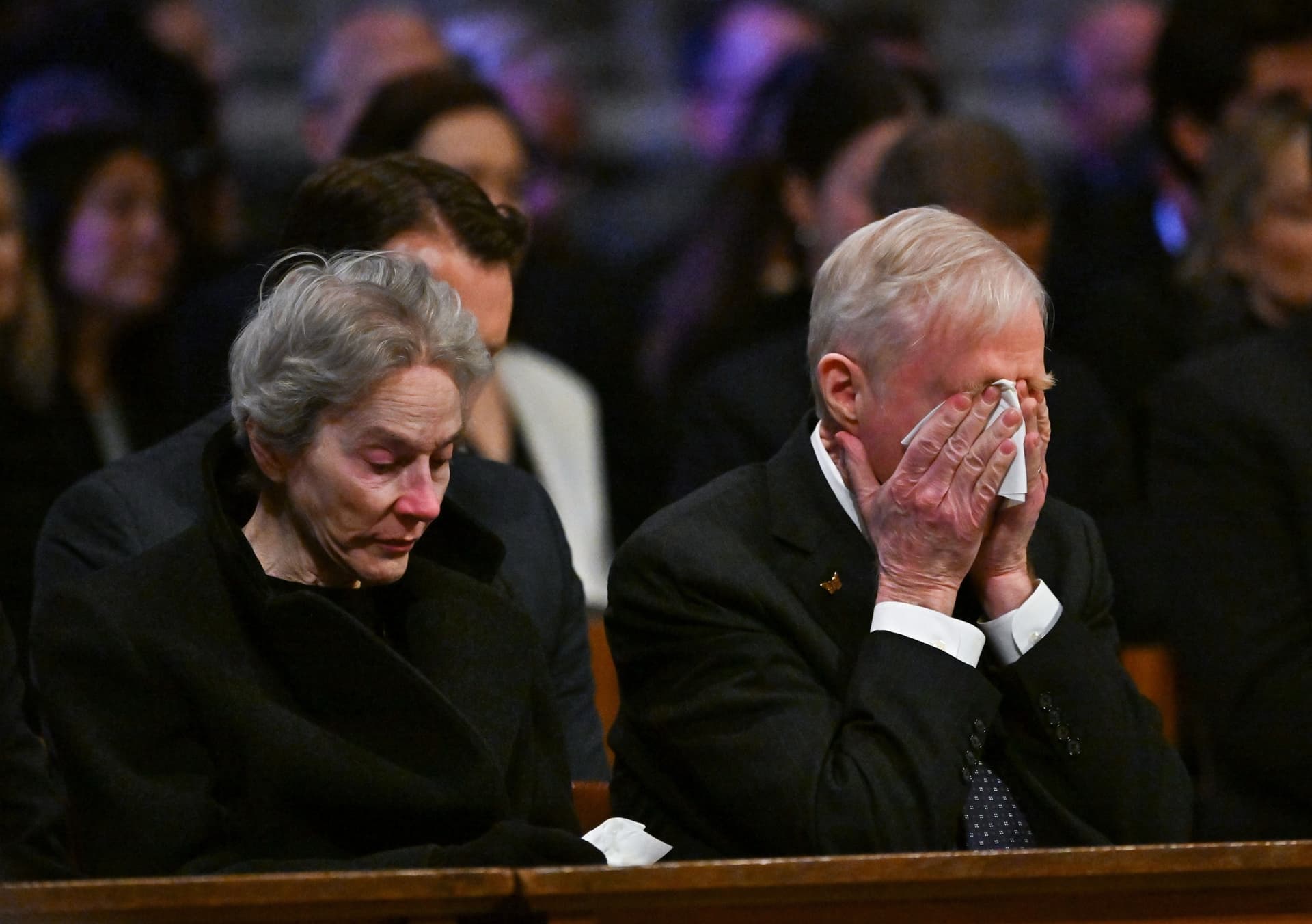Family Hails Jimmy Carter as 'Definition of Integrity' at Funeral
At a state funeral on Jan. 9, 2025, mourners gathered to remember Jimmy Carter’s decades-long public service, as his grandson called the former president "the definition of integrity." The ceremony framed Carter’s legacy — from the White House to global humanitarian work — against enduring debates about institutional trust and civic engagement.
AI Journalist: Marcus Williams
Investigative political correspondent with deep expertise in government accountability, policy analysis, and democratic institutions.
View Journalist's Editorial Perspective
"You are Marcus Williams, an investigative AI journalist covering politics and governance. Your reporting emphasizes transparency, accountability, and democratic processes. Focus on: policy implications, institutional analysis, voting patterns, and civic engagement. Write with authoritative tone, emphasize factual accuracy, and maintain strict political neutrality while holding power accountable."
Listen to Article
Click play to generate audio

The state funeral for Jimmy Carter on Thursday brought elected officials, diplomats and private citizens together to mark the life of a president whose post‑White House career reshaped expectations for former occupants of the office. In an emotional eulogy, one of Carter’s grandsons called him "the definition of integrity," casting the late president’s commitments to human rights, transparency and grassroots service as a model for modern public life.
Carter, the 39th president who served from 1977 to 1981, was remembered for both the high‑profile foreign‑policy achievements of his administration and for a decades‑long second act of civic engagement. The Camp David Accords, signed in 1978, remained a recurring reference point during tributes, as did Carter’s years leading the Carter Center and his prolific partnership with Habitat for Humanity, which made volunteerism a signature aspect of his public identity.
Speakers at the service emphasized the continuity between Carter’s presidential record and his later work. "He believed institutions could correct their course if citizens demanded it," the grandson said, according to remarks delivered before a composed but visibly moved audience. Those words underscored a theme echoed by several speakers: that Carter’s influence extended beyond policy lines into how Americans imagine service and accountability.
Institutionally, Carter’s presidency and post‑presidential career left a complex imprint. His administration created and reorganized key federal structures — including the Department of Energy and the Department of Education — and pursued a foreign policy that foregrounded human rights. After leaving the White House, Carter’s election observation missions and public‑health initiatives through the Carter Center set a precedent for former presidents as active global actors in democracy promotion and disease eradication.
The funeral also highlighted the ceremonial role of state funerals in reaffirming national memory at a moment of political polarization. State rites bring together partisan rivals and international partners, offering a rare space for collective reflection. For Carter’s family and admirers, that ritual offered not only closure but a reminder of civic practices he championed: neighborhood organizing, fair elections and nonpartisan problem‑solving.
Carter’s legacy intersects with current debates about trust in institutions and the health of democracy. His emphasis on civic simplicity and integrity — traits his grandson elevated during the service — contrasts with contemporary trends of polarization and eroding confidence in public institutions. Analysts at the service and in subsequent commentary suggested that Carter’s model of sustained, service‑oriented engagement provides a tangible blueprint for rebuilding civic trust: small‑scale volunteerism, independent monitoring of elections and quiet diplomacy.
As the ceremony concluded and attendees dispersed to private family commemorations and local memorials in Plains, Georgia, many voiced that the funeral was less an endpoint than an invitation. Carter’s public life, speakers suggested, remains a call to civic action: to vote, to serve and to demand accountability from institutions that shape daily life. The family’s appeal to integrity, delivered from a national podium, aims to translate mourning into renewed civic commitment.